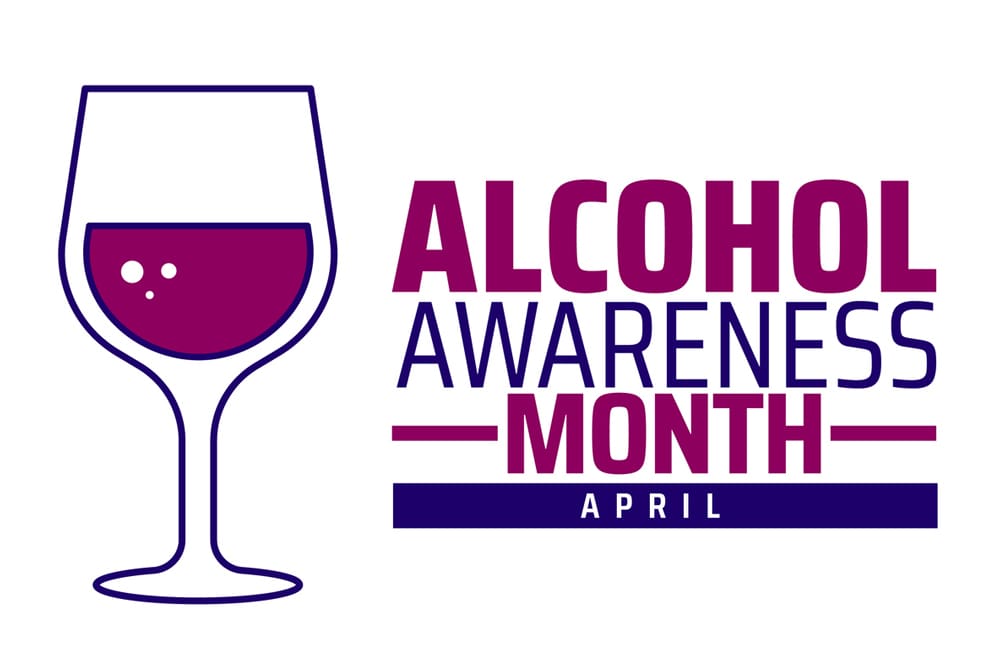April is a time for renewal and reflection, and it also marks an important national observance: Alcohol Awareness Month. Established by the National Council on Alcoholism and Drug Dependence (NCADD), this month is dedicated to raising awareness about alcohol use and misuse, offering education, and providing support for individuals struggling with alcohol dependence. It’s an opportunity for you, your community, and the nation as a whole to better understand the impact of alcohol on physical and mental health and to take steps toward prevention and recovery.
Why Alcohol Awareness Month Matters
Alcohol misuse is one of America’s most pressing public health concerns. According to the Centers for Disease Control and Prevention (CDC), about 178,000 people die from excessive alcohol use each year in the United States. From binge drinking to alcohol dependency, the effects of excessive alcohol use can be devastating—not only for the individual struggling with it but also for their loved ones and society at large.
By recognizing Alcohol Awareness Month, we can break down the stigma surrounding alcohol addiction, promote early intervention, and provide resources to those in need. Education and awareness are the first steps in preventing alcohol misuse and supporting those who are in recovery.
Understanding Alcohol Use Disorder
Drinking alcohol is a common social activity, but for some, it can become a serious problem. Alcohol use disorder (AUD) is a chronic disease characterized by an inability to control alcohol consumption despite negative consequences. It can range from mild to severe and often progresses over time.
Signs of AUD include:
- Drinking more or for longer than intended
- Wanting to cut down but being unable to do so
- Spending a lot of time drinking or recovering from its effects
- Cravings or a strong urge to drink
- Failing to fulfill responsibilities at work, school, or home due to drinking
- Continuing to drink despite problems with relationships or health
- Needing more alcohol to feel the same effects (tolerance)
- Experiencing withdrawal symptoms when not drinking
Recognizing these signs in yourself or a loved one can be the first step toward seeking help.
The Dangers of Alcohol Misuse
While moderate alcohol consumption may not pose significant health risks for some, excessive drinking can lead to serious physical, emotional, and social consequences.
- Health risks. Alcohol misuse has health consequences and increases the risk of liver disease, heart disease, high blood pressure, and certain types of cancer. It also weakens the immune system, making it harder for your body to fight off illness.
- Mental health effects. Alcohol use can exacerbate anxiety, depression, and other mental health disorders. It often becomes a coping mechanism for stress or emotional pain, creating a vicious cycle of dependency.
- Social and legal consequences. From DUI arrests to workplace issues and relationship breakdowns, alcohol misuse can significantly impact your personal and professional life.
The Importance of Education and Prevention
One of the main goals of Alcohol Awareness Month is to educate young people about the risks associated with alcohol use. The earlier someone starts drinking, the higher the likelihood of developing alcohol dependency later in life. Raising awareness among youth and parents about the dangers of underage drinking can prevent future problems.
Know You Are Not Alone
If you or someone you love is struggling with alcohol addiction, know that help is available. Recovery is possible, and many individuals have successfully regained control of their lives with the right support.
At Twin Lakes Recovery Center in Monroe, Georgia, we offer comprehensive treatment options tailored to meet individual needs, including medical detox, residential treatment, outpatient programs, and a family recovery program.
How You Can Participate in Alcohol Awareness Month
There are many ways to get involved and help raise awareness about alcohol misuse:
- Educate yourself and others about the risks of alcohol use and the signs of addiction.
- Talk to young people about the dangers of underage drinking and binge drinking.
- Support local events and campaigns promoting alcohol awareness and prevention.
- Encourage open conversations about alcohol use within your community.
- Offer support to friends or family members who may be struggling.
Breaking free from alcohol addiction takes courage, but it is possible with the right resources and support. Whether you are seeking help for yourself or a loved one, Twin Lakes Recovery Center is here to guide you every step of the way. If you or someone you know needs help, don’t wait. Contact us today to learn more about our alcohol treatment programs and take the first step toward recovery.




